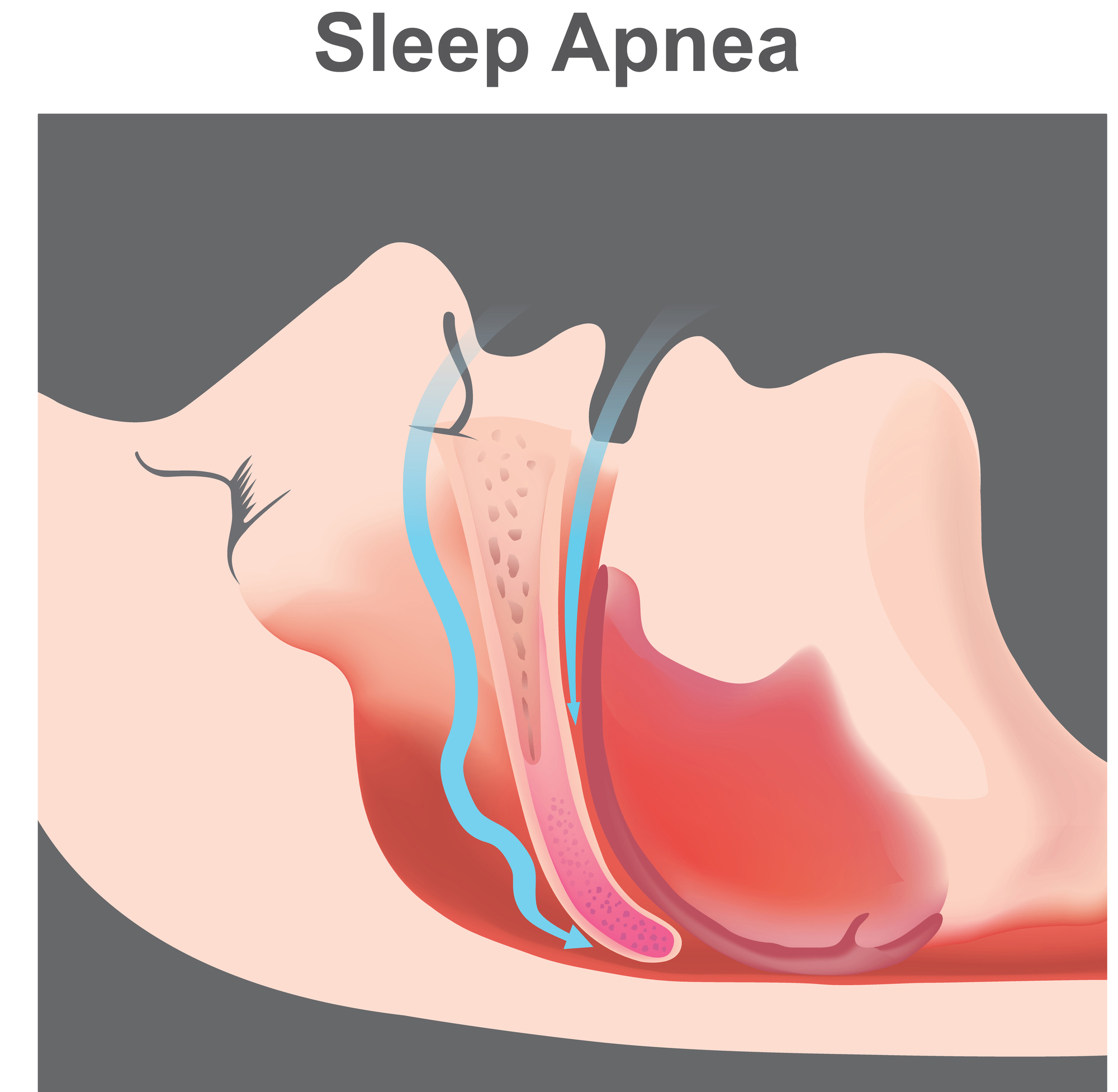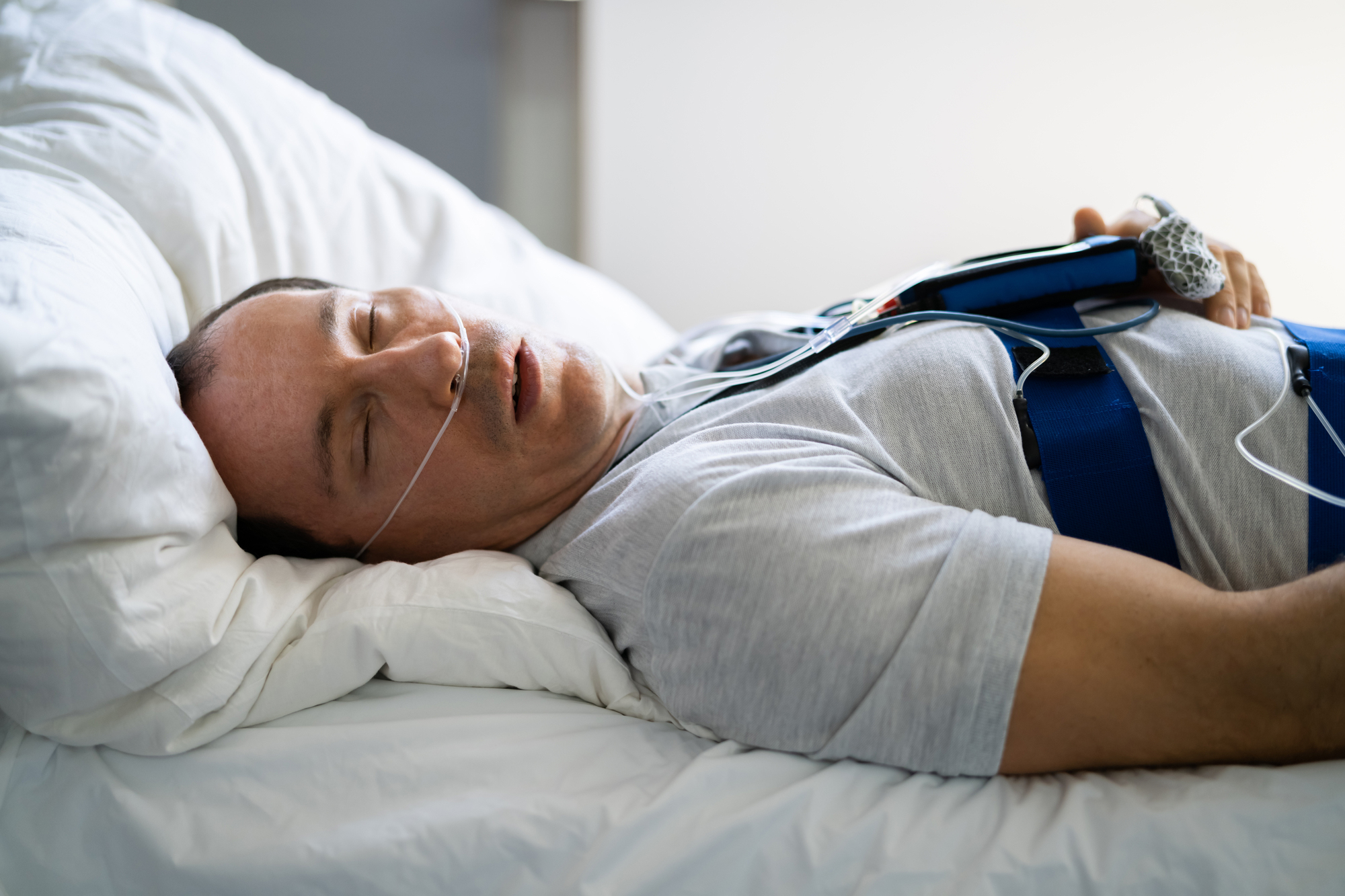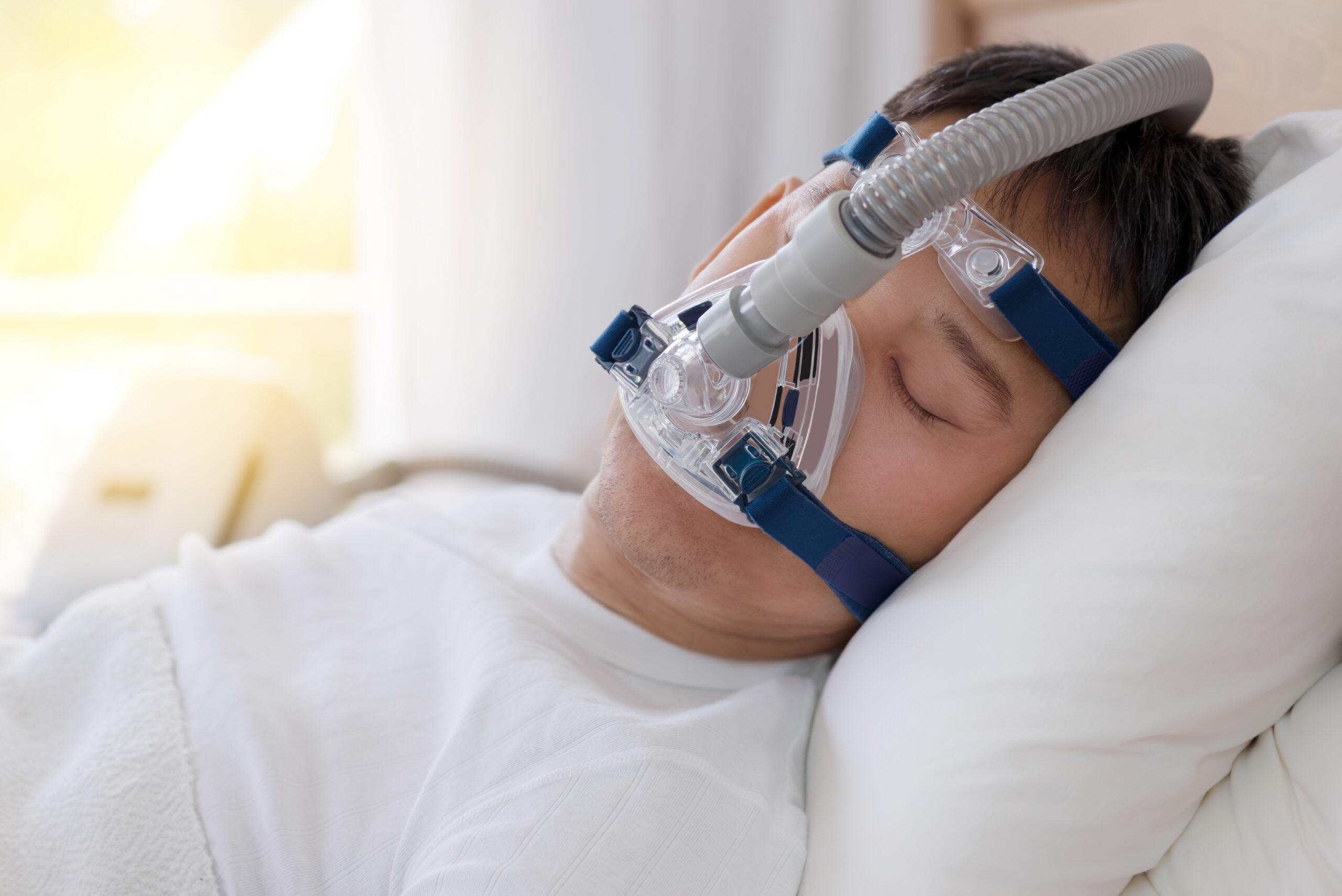

Types Of Sleep Apnea:

Snoring can be caused by a variety of factors that can cause the vibration of respiratory tissues and airways. Snoring and sleep apnea share a lot of common causes and risk factors, including obesity, ageing, gender, genetics, alcohol and sedatives, nasal congestion, and sleep position.
The primary difference between snoring and sleep apnea is that snoring can cause sleep apnea. This means those who snore are more at risk of developing sleep apnea. However, not everyone who snores will develop it. This is why you need to get in touch with an expert sleep apnea specialist in Mumbai, who can help diagnose if your snoring is more than what it seems.
The loudness and frequency of the sound produced while sleeping is one of the important factors that can help answer your question, “Is snoring the same as sleep apnea?”
Breathing pattern is another factor that can help you differentiate between snoring and sleep apnea. While snoring, a person continuously breathes, whereas, with sleep apnea, the person may experience complete or partial airway obstruction. The obstruction can lead to episodes of interrupted breathing. This can last several seconds and may also result in a drop in blood oxygen level.
While this factor may not directly help you identify if you have sleep apnea or snoring. The health implications of both sleep apnea and snoring are vastly different.
A medical professional may conduct diagnostic tests to assess a person’s breathing pattern when they are asleep. Some of the widely used diagnostic sleep study tests include polysomnography and home sleep study tests that monitor various parameters, including brain waves, eye movements, and muscle activity while the person sleeps.

To summarise, if you are experiencing the following symptoms, you might have sleep apnea. However, you should keep in mind expert opinion is necessary to confirm the self-diagnosis.
If you are experiencing the following symptoms, then you might have a snoring problem. However, you need to get an expert opinion to confirm the self-diagnosis for snoring.

Understanding the differences between snoring and sleep apnea is important for proper diagnosis and treatment. Since snoring can lead to sleep apnea, it is necessary to seek medical help for both conditions. A healthcare specialist will help advise you on the proper treatment options, which include myofunctional therapy, sleep appliances, tongue tie treatment, and CPAP machines.
So, if you suspect that you or a loved one may be suffering from snoring or sleep apnea, we advise you to seek medical help at the earliest.
Copyright ©2025 TMJ, Tongue Tie and Sleep Institute. All Rights Reserved.
WhatsApp us
Let Us Know How Can We Help You!
At our institute, we take pride in providing complete care for issues related to tongue tie and TMJ. To enhance your quality of life, we treat a range of ailments with state-of-the-art technology and expert care. If you’re searching for an effective tongue-tie operation option or a TMJ specialist in India, you have arrived at the right place.
A tongue tie operation or tongue tie surgery is a life-changing procedure that not only restores tongue mobility but also has a full body effect. While most people associate tongue tie with breastfeeding difficulties in infants, it can also affect speech, breathing, posture, dental health, and sleep patterns in older children and adults. By undergoing this minimally invasive fascia release procedure, patients often experience immediate improvements in functionality and overall well-being.
For individuals considering tongue tie surgery, the benefits are far-reaching:
The Temporomandibular Joint (TMJ) that is your Jaw Joint has a significant impact on one’s quality of life, as they leave the person feeling exhausted and irritable. It not only affects essential functions like chewing, speaking, yawning but also affects one’s posture, breathing and sleep. As a leading TMJ specialist in Mumbai, we offer comprehensive diagnostics and personalized treatment plans to address your unique needs.
An integral part of our treatment protocols is myofunctional therapy. Exercises used in this therapy help to strengthen and coordinate the muscles of the tongue and face. Whether you’re undergoing a tongue tie operation or being treated for TMJ issues, myofunctional therapy plays a pivotal role in ensuring lasting outcomes.
Expertise and complete treatment are essential for treating TMJ issues or tongue tie. Whether you’re searching for the best tongue tie surgery options or a trusted TMJ specialist in Mumbai, we ensure personalized care and transformative results. Don’t let these conditions stop you—reach out to us today to book your consultation and start your journey toward better health and wellness.